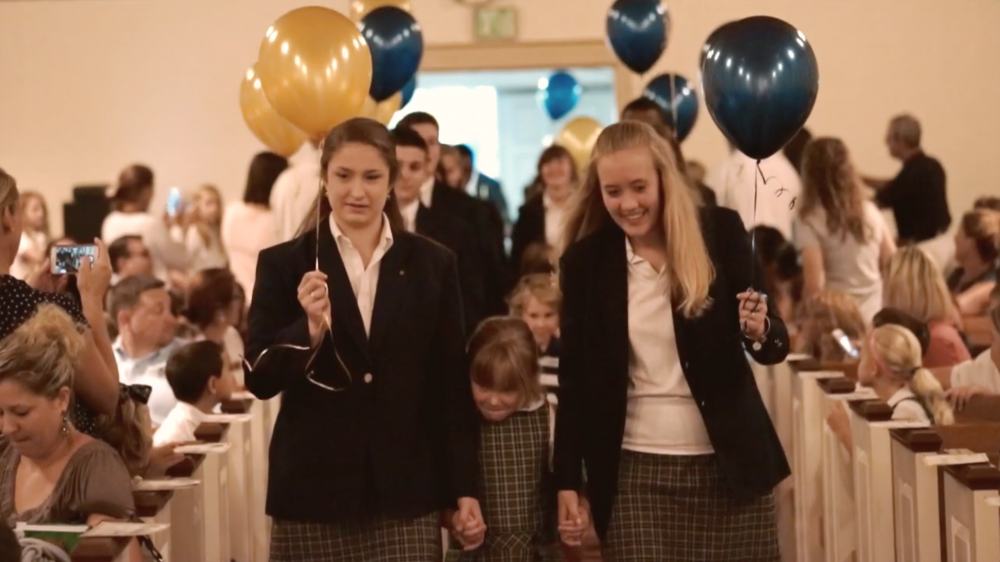Every so often, someone coins a phrase that encapsulates a set of concepts to which we subscribe. At Cambridge Christian School (CCS), one such phrase is “single school culture.” Every school has its distinctions, but culturally, in my experience, one discovers more similarities than differences when traveling between most Christian schools. Our desire at CCS is to cultivate a unique single school culture wherein excellence and consistency in the execution of our mission are pervasive and contagious.
A single school culture begins with shared purpose, mission, beliefs and goals and results in agreed upon methods of application. For purposes of this discussion, school culture will be defined around the academics, behavior and climate within the school. A single school culture is one in which these items can be described campus-wide as follows:
Academics – Students are seen as capable of intellectual development. Both the brain and heart are seen as malleable. Quality of Instruction and personalized support are viewed as critical. Collaboration is modeled and expected. Curriculum is aligned vertically and horizontally. The school culture is crafted to enhance student learning and growth. Families experience consistency on issues like philosophy of homework.
Behavior – Expectations for appropriate behavior are clear, and adults model what they want to see in return. Biblical principles are followed in terms of accountability, discipline, and partnership with parents. Positive professional culture includes meaningful staff development, successful curricular reform, and the effective use of student data.
Climate – The perception of stakeholders concerning the fairness, openness, friendliness, ethos of caring, and sense of welcome of the school. Relational trust is paramount. Servant leadership is lived and taught, and the importance of customer service is understood. Strength in climate leads to high staff productivity leads to student achievement.
CCS is blessed in that many years ago, school leaders here understood the importance of culture on this Christian school campus. In fact, our current Upper School Principal, Mrs. Coney, was originally hired not as a Principal, but as a “culture-addresser.” As is most often the case in K-12 schools, our Upper School at the time was the most obvious place where our culture needed to be strengthened, so Mrs. Coney was tasked with just that. By the time Mr. Euler and I arrived a couple of years ago, many components of a strong school culture had been well entrenched at CCS campus-wide.
Still, room for improvement existed, and still exists, within our school culture. Moving CCS to a mindset of one school to include Little Lambs through 12th grade is the type of undertaking that generally entails change, and, as you know, we have had no shortage of that in the last two years. Praise God – CCS has not only survived, but thrived, through those changes, and our culture is stronger for it. It’s a good thing because there will be more change to come, though that change will be due to growth. It has been exciting to watch students, parents and staff come together under the umbrella of Kingdom Education. Despite our best efforts, we will not achieve unity in mission for the sake of growth in our students without Christ at the center. Initiatives like character education – even Biblical character education – have a ceiling; we want to build a culture that creates coherence among all elements of school life.
Hopefully, you have noticed and appreciated some of the recent progress at CCS. Moving forward, you will continue to see an increase in things like:
” Consistency in grading policies across grade levels and subject areas (as appropriate)
” Consistency in expectations of student behavior within divisions
” School-wide events that position our older students as mentors
” Professional staff development
” Meeting individual student needs
” Events directed at building relationships
” Innovative curricular reform
” An unapologetic commitment to Biblical worldview integration
” Collaboration among and between students, teachers, departments and divisions
” The maximization of class time
Building a single school culture will require a unified effort from all constituents. Thank you in advance for doing your part!
1. Elbot, Charles F. and Fulton, David. Building an Intentional School Culture. Corwin Press, 2008.
2. https://prezi.com/hq4tu_139sqf/single-school-culture/
3. //www.center-school.org/profdev/documents/adler-backhus.pdf
4. //www.palmbeachschools.org/ssci/WhatIsSSC.asp, School District of Palm Beach County, Alison Adler, Ed.D






